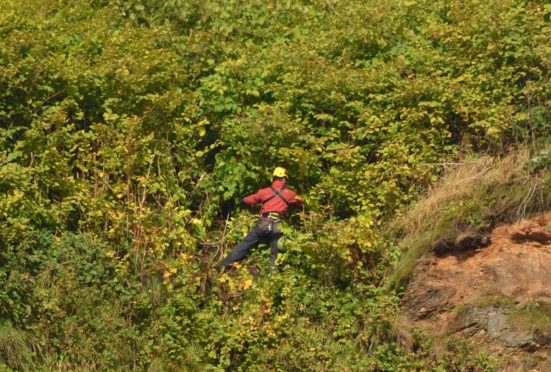A local authority has employed specialists to tackle an unwanted plant growing on coastal cliffs.
Japanese knotweed is a non-native and vigorously-growing plant which can form dense stands which stifle other vegetation.
It has been found to be growing in coastal gorges and on cliffs around the Muchalls and Newtonhill areas, which form part of local nature conservation sites and are important for bio-diversity.
Now Aberdeenshire Council has drafted in Blokes on Ropes to work with the North East Non-Native Invasive Species (NENNIS) Project to get rid of the knotweed.
The NENNIS Project, funded by Leader, is a collaboration of local authorities, Scottish Natural Heritage, local communities and interest groups and aims to provide training on how to control invasive species.
At Muchalls, Japanese knotweed has established at the top of steep coastal cliffs but following a landslide several years ago has spread.
Councillor Anne Stirling, one of the council’s bio-diversity champions for invasive species, welcomed the work.
She said: “Controlling Japanese knotweed in these locations is vitally important to prevent the further spread of this invasive plant into sensitive coastal habitats.
“We are pleased to be working with a specialist company in these challenging environments where ropes have been required to safely access and treat these alien plants.”
